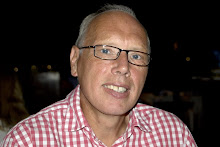There is an interesting in the THES today which states that, "Email culture kills interaction between campus colleagues".
Do you agree?
The article starts:- "V-cs in 'state of denial' about quality of internal communications, survey reveals. John Gill reports
An overbearing "email culture" and a shortage of staffrooms and areas where people can meet and chat are being blamed for hindering internal communications in universities.
In addition, communications directors consider academic managers to be much weaker at communicating with staff than their counterparts in purely administrative roles.
The initial findings of a sector-wide research project led by the University of Leicester also suggest that the views of vice-chancellors on internal communications strategies are often far removed from those of the people employed to oversee those strategies".
